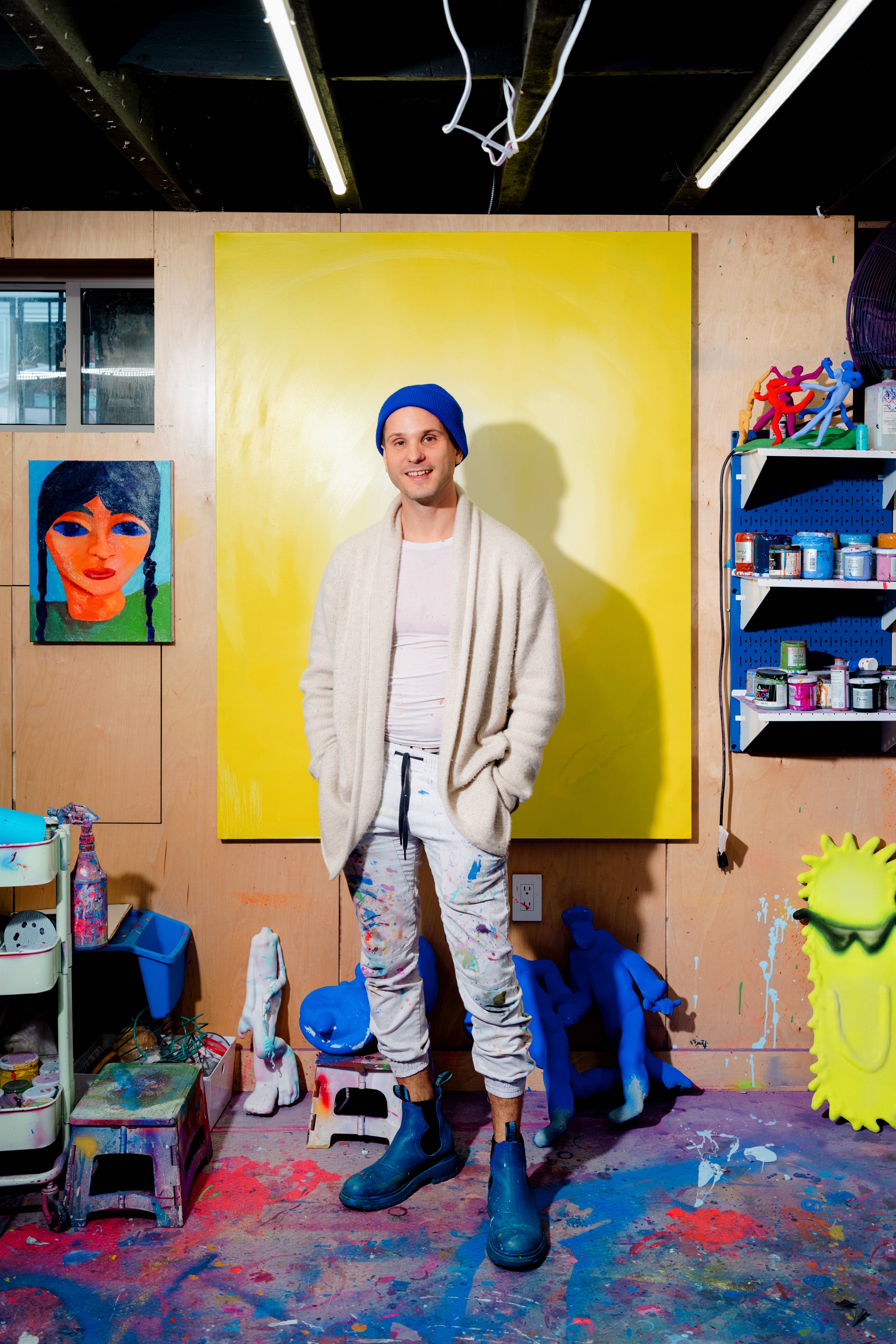Mindy Seu is an American designer and technologist, whose work focuses on public engagement with digital archives. In a world where everything is available online, Seu is working on creating tools that can allow the mainstream to understand the ecology of the internet, as well as learning how to critique whilst moving forward.
I am going to go right in, as I find your work so unique and interesting. Why are you so passionate about the intersection of technology and design? You have dedicated a lot of time into research, and I'm so intrigued why you love something a lot of people might find confusing and possibly boring.
I’ve always thought of myself as medium agnostic. I delve into research and collaborate with people, then different formal outputs emerge from that organically. Sometimes that would be a website, sometimes a book, and sometimes, an installation or essay. Because of this, it has allowed me to experiment with new forms, but beyond that, thematically, I've always been interested in creating tools, and understanding how they shape behaviours — and this all coalesces in techno-critical projects.
Was there a particular trigger that influenced your interest?
As an undergraduate I became fascinated with software and print and how complementary those two are together. I ended up creating this print-on-demand tool, which funnily enough, I’m still creating today. However, in terms of the content itself, I was much more interested in the archival practice of how to represent physical artefacts in a digital space.
So, what did that look like to you?
I was creating a bibliography that was bringing together critical and creative uses of code, for myself and the people around me. When I combined all of this with theory, the first container of my book, the Cyberfeminism Index emerged, and it has been crowdsourced ever since.

That is amazing. So basically, you saw a space and a need, and decided to deep dive into that particular world. Was that easy to do, seeing as you were already involved and interested?
I was part of this world and saw so much of this content around me, yet I couldn't find an aggregate. I’ve always been quite the list maker and an organiser.
I’m the same, I love a list!
Right? Once I started putting down a list of my collaborators, colleagues and references, clear through lines started emerging.
Why do you think this was not done before?
On the one hand, the internet is ubiquitous; many people have access to it, and use it daily. On the other hand, many aspects of it still feel quite niche. Especially if you're approaching this from a creative angle. For those thinking about the implications of technology on society, that niche becomes even smaller. It felt like I was highlighting something that might have been very visible in my bubble, but maybe less so in the mainstream.
Oh, interesting. So, you have rolled your research all together so everyone can have some level of understanding.
I felt it could resonate with what people were feeling. There is a dystopic leaning towards the progression of the internet now, but this compilation has made space for alternative conversation around that.

With the current climate of growing fear and anger towards technology, particularly AI, how are those in these subcultures reacting? Are they more positive?
Positive and negative leanings are always entwined, as you kind of need one in order to reveal the other. Perhaps the mainstream use or adoption of these tools reveals these problems, and right now, we are certainly in a period of acceleration. Perhaps this is where artists come in, as they are able to really push forward the breaking points of these tools, develop new ones, and use platforms in alternative ways. In this way you can be critical of a tool whilst using it.
Do you think this normally doesn’t happen as people are excited by new tools, and think about the creation and not the critique?
Somewhat. Ben Tarnoff is a tech writer and he has a great newsletter called Metal Machine Music, where he recently wrote about the technologies of dead generations and different ways of approaching platform criticism. On one hand, there were people who were not using the tool, but offering a critique. However, there was another group of people who actively used the tool, and added a layer of critique on top which led to the emergence of an alternate tool. I think I sit in the second camp, where I am an early adopter. I want to know what the affordances of these spaces actually are and, in doing so, you develop a really complex understanding of the clear benefits and downsides of the tool.
This is very important as technology moves forward quickly, or so it seems. We need to have this type of research accessible to the mainstream. I am not in the tech world, so even this conversation is enlightening, as clear resources need to be made available.
Right now, we are in a period of acceleration, but these things have been in development for decades. The technical efficacy has really sped up, but if you look at this historically, all of these things have clear precedence. This is not the first time that automation has completely changed a market.
Yeah, that is a good point.
Like if you think about Ford Motor Cars, when they introduced assembly lines, it led to a lot of fear, but also the emergence of a lot of regulation. I imagine something similar happening now. I always tell my students that new technologies will always emerge and the best thing we can do is try to become extremely proficient and critical of those tools and how to use them in some ways, they can actually become great collaborators and complement our practices. You can also, then by having a clear proficiency in the space, figure out what actually needs to be changed.

Do you think there needs to be more education in the way that people discuss technology in larger media scape? There's a lot of misunderstanding and confusion.
This 24-hour news cycle is really built off of consumption models, and I actually feel like it's not the healthiest way to introduce a complex understanding of the space.
Are you hoping with publications like yours, that people will use it for their own research and have more informed conversations?
Yeah, I mean for me the Cyberfeminism Index feels kind of like an encyclopedia. There are other essays in the book, but for the most part it's almost presented kind of like a history book - a very subjective, and biassed curation of a particular history, which arguably is all history books. So, in this case I kind of see it as a resource guide for people who use the Internet. You can use it in a variety of ways. You can find content specific to things that you're interested in, like artificial intelligence or hackerspaces. You can also kind of flip through it. While there is a lot of criticism throughout the book, there's also a lot of optimism. So, we have people from the past three decades who have done a lot of work in the space that has led to change that you start to see once they're all compiled together. I think that we forget because a lot of the things that we're reading do feel so pessimistic. We forget that a lot of work has been done and this might inspire some alternatives to how we kind of approach these different movements moving forward.
It is quite nice to have a more optimistic view of what is happening around us now. How do you see the future looking like in 10, 20, 30 years from now? As you mentioned, the technology we are seeing now has been developed for decades previously, so I'm intrigued by your thoughts
If we look at this historically, let's talk about things like VR and the Metaverse, for example. The technology of these things has been in production since the mid 1900s, but if you think about it, in terms of analogue precedence, some people also describe a panoramic painting as a precursor for these immersive things like that. I think people have been showing interest in exploring these themes throughout time - we are just seeing the high-tech version now. I really like generally understanding that most of these things will always have analogue precursors. The hyperlink first started off as indexes, bibliographies and footnotes in printed volumes, and people who created hyperlinking structures, like Ted Nelson, will openly cite these physical objects as inspiration for the digital equivalent. So, if we consider that in the next several decades, we will probably again start to see many of these loops like a lot of the things that we see emerging.
That's a really succinct way of describing technology development. We might have things right now that will just accelerate into something else. We just haven't seen it yet.
Tools are essentially an extension of the human body. A pencil can be seen as an extension of the hand, a wheel as an extension of the foot. With a broom, you can use that broom as intended to sweep. Or you can flip it upside down and break a window, which is using it in a way that was unintended. But ultimately, it impacts the shape of the body. It changes the form of the hand, and I think that is a nice way to think about tools. They have a variety of uses, but technology can fundamentally have an impact on the way our bodies react and behave.

Interview by Ilirjana Alushaj
Photography by Maggie Shannon

